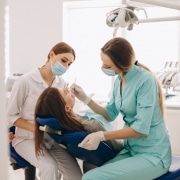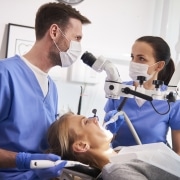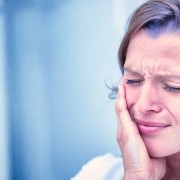How Facial Spasms Affect Your Teeth
Facial spasms refer to any involuntary contraction of your facial muscles. For the most part, they’re uncommon occurrences, though it’s worth noting that they’re likely more common than we think.
Because facial spasms can occur for any number of reasons, including an extra cup of coffee or an unexpected stressor, we don’t always even notice them (which means they’re never reported to a dentist in Owensboro, KY). Below, we’ll look at how facial spasms affect more than the muscles in your face.
Facial Spasms and Your Teeth
Facial spasms come in a variety of flavors, with some affecting your eyelids and others affecting your jaw. Bruxism and Meige syndrome are medical terms that refer to involuntary movements of the jaw and mouth. With Meige syndrome, you’ll probably have a heads up about your facial spasms because it happens when you’re awake.
With bruxism, though, you’re grinding and clenching your teeth while you’re asleep. Sometimes, the only way you’ll know that this is occurring is if a partner tells you or if you start to have visible wear and tear on your teeth. With bruxism, you’re slowly grinding your teeth down, which can not just weaken the tooth, it can eventually cause you to either need a root canal or to lose it entirely.
How to Treat Facial Spasms
Treating facial spasms starts with diagnosing them. If you’re not sure what’s causing your facial tics or jaw pain, it helps to have the right professional evaluate you for damage and (potentially) restorative rehab in Owensboro, KY. At the very least, standard dental exams can reveal changes from your teeth over the years.





